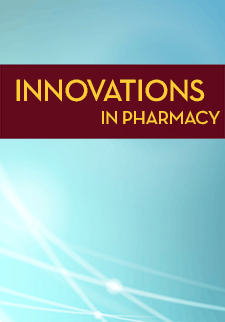Implementation of a Student Pharmacist-Led Program to Enhance Health Access in an Arab-American Community Head: Health Program in an Arab-American Community
Sally A. Arif
Midwestern University College of Pharmacy; Rush University Medical Ctr, Chicago, IL
Irfana Lakada
Midwestern University College of Pharmacy; Shields Health Solutions, Stoughton, MA
Zahi Fawaz
Midwestern University College of Pharmacy; Walmart Pharmacy, Livonia, MI
Jenine Abuzir
Midwestern University College of Pharmacy; University of Illinois-Chicago College of Pharmacy
Paul O'Donnell
Midwestern University College of Pharmacy; Rush University Medical Ctr, Chicago, IL
DOI: https://doi.org/10.24926/iip.v14i2.5243
Keywords: Health access, community health, Student Pharmacists, Arab-American
Abstract
Objectives: Immigration of Arabs to the United States has increased in recent years due to political instability and need for improved access to healthcare. Cardiovascular disease, diabetes, and obesity disproportionally affect Arab Americans. Student pharmacists are well positioned to increase health awareness by providing health screening services and education classes to the Arab immigrant community. This report will describe the development of a student-run Arab American Health Awareness Program (AAHAP) that provides culturally-sensitive community screening services targeting common health disparities seen among Arab-Americans.
Design: Data were collected on the number of patient cardiometabolic screenings, referrals for medical care, and health classes which were performed over the course of 2 years. The practice setting included community centers, faith-based centers, and grocery stores in the Chicago area participating in the AAHAP.
Results: Over the course of two years, eight cardiometabolic screenings and four community health classes were provided to the Arab-American community. Over 100 student pharmacists provided screenings to 929 patients through AAHAP. Twenty percent (n=193) of all patients screened were referred for further medical care. A total of 77% patients were within goal for blood pressure, 82.3% for blood glucose, and 39.4% for BMI. Patients with a known history of hypertension (n=83) or diabetes (n=64) were more likely to have uncontrolled blood pressure (45% vs 11%, p<0.05) or blood glucose (39% vs 14%, p<0.05) compared to patients without a history of these chronic conditions.
Conclusion: Student pharmacists can be drivers for health access through community health programs for ethnically minoritized populations. Development of a health awareness program focused on known health disparities in Arab Americans has provided student pharmacists with opportunities to deliver culturally-sensitive care and medical referral services to an underserved community.



